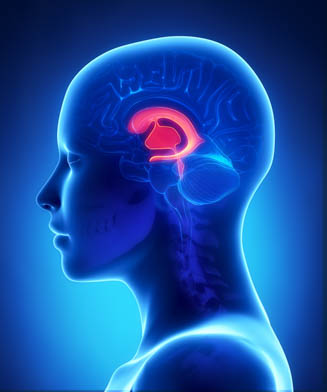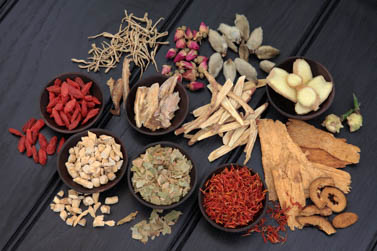Researchers find acupuncture combined with herbal medicine effective for the treatment of insomnia. A randomized-controlled study of 200 patients, published in the Clinical Journal of Chinese Medicine, investigated the efficaciousness of TCM (Traditional Chinese Medicine) herbal formulas combined with a protocolized acupuncture point prescription.  Acupuncture, as a standalone therapeutic modality, achieved a total effective rate of 85%. The combined herbal and acupuncture therapeutic regimen achieved a total effective rate of 93%.
Acupuncture, as a standalone therapeutic modality, achieved a total effective rate of 85%. The combined herbal and acupuncture therapeutic regimen achieved a total effective rate of 93%.
Clinical improvements achieved with acupuncture and herbal medicine include improved sleep time and sleep quality. Additional benefits include alleviation of headaches and fatigue. The researchers concluded that acupuncture plus TCM herbal medicine is effective for the treatment of insomnia and is characterized by a high total effective rate, lower recurrence rate, and rapid onset of relief.
The herbal medicines found effective include the following formulas:
- Gui Pi Tang
- E Jiao Tang
- Bao He Wan
- Long Dan Xie Gan Tang
The acupuncture point prescription used in the study included the following acupoints:
- Shenmai (BL62)
- Zhaohai (KD6)
- Baihui (DU20)
- Sishencong
- Yintang
- Neiguan (PC6)
- Shenmen (HT7)
- Sanyinjiao (SP6)
Xi et al. conducted a similar randomized-controlled investigation of 98 patients with insomnia. This study added massage to the herbal medicine and acupuncture regimen. The data was analyzed using the PSQI (Pittsburg Sleep Quality Index). The total efficacy rate was 93.88%. The researchers concluded that a comprehensive treatment of acupuncture, TCM herbal medicine, and massage improves sleep quality and reduces insomnia.
The primary acupuncture points used in the study include:
- Baihui (DU20)
- Shenting (DU24)
- Benshen (GB13)
- Shenmen (HT7)
- Sishencong
Additional acupoints were added for specific indications. For forgetfulness, SP6 was added. For headaches or palpitations, LV2 (Xingjian) and PC6 were added. For loss of appetite, SP20 (Zhongruan) and ST36 (Zusanli) were added. For nervousness, LI4 (Hegu) and GB9 (Taichong) were added. For patients with weakness and dizziness, CV4 (Guanyuan) and GB9 were added.
The TCM herbal formula contained the following herbs: Chai Hu, Dang Shen, Bai Zhu, Fu Ling, Bai Shao, Chen Pi, Ban Xia, Ji Nei Jin, Mai Men Dong, Zhi Gan Cao. Massage was applied to the head and abdomen. Tui-na TCM massage was applied for 10 minutes to both sides of the head and acupressure was applied to SJ20 (Jiaosun). An additional 8 minutes of abdominal massage was applied to CV4 (Guanyuan) and CV6 (Qihai). The combined therapy of acupuncture, herbs, and massage produced significant positive patient outcomes for patients with insomnia.

Wang et al. also demonstrated that acupuncture and herbs are effective in the relief of insomnia. The TCM herbal formula used in the study was Ningxin Anshen. Acupuncture was applied to Sishencong, Yintang, Anmian, and Taiyang. The total effective rate of the combined therapy was 97.67%. Sleep time, sleep quality, and daytime function all improved significantly.
Guo et al. conducted a blinded, randomized, placebo-controlled investigation comparing acupuncture with estazolam, a benzodiazepine. True acupuncture was found more effective than both estazolam and the sham acupuncture control. True acupuncture produced significant positive patient outcomes for total sleep time, sleep quality, daytime functioning, and sleep efficiency. The daytime functioning improvements included fatigue reduction, less daytime drowsiness, increased alertness and concentration, and reduced mood disturbances. Acupuncture points used in the study were:
- Shenting (DU24)
- Sishencong (EX-HN1)
- Baihui (DU20)
- Shenmen (HT7)
- Sanyinjiao (SP6)
The researchers added that “acupuncture was superior in improving sleep quality and daytime functioning of primary insomnia compared with estazolam and sham acupuncture.” The studies mentioned in this report document the efficaciousness of treating insomnia with acupuncture and herbal medicine. The results suggest an additive or synergistic effect.
References:
Min Yang. Clinical Observation on Treating 100 Cases Insomnia with TCM plus acupuncture. Clinical Journal of Chinese Medicine, 2015, 7(11): 42-44.
Yuhua Xi. Observation on a Comprehensive Treatment of Acupuncture, TCM and massage. Chinese Manipulation & Rehabilitation Medicine, 2015, 6(6): 29-31.
Yan Wang, Shuang Yang, Xiaodi Li. Clinical Research on Ningxin Anshen Prescription Medicine Combined with Acupuncture and Massage in Improving Sleep Quality of Insomnia Patients. World Chinese Medicine, 2015, 10(6): 856-860.
Guo, Jing, Lin-Peng Wang, Cun-Zhi Liu, Jie Zhang, Gui-Ling Wang, Jing-Hong Yi, Jin-Lian Cheng, and R. Musil. "Efficacy of acupuncture for primary insomnia: a randomized controlled clinical trial." Deutsche Zeitschrift für Akupunktur 57, no. 4 (2014): 31-32.


